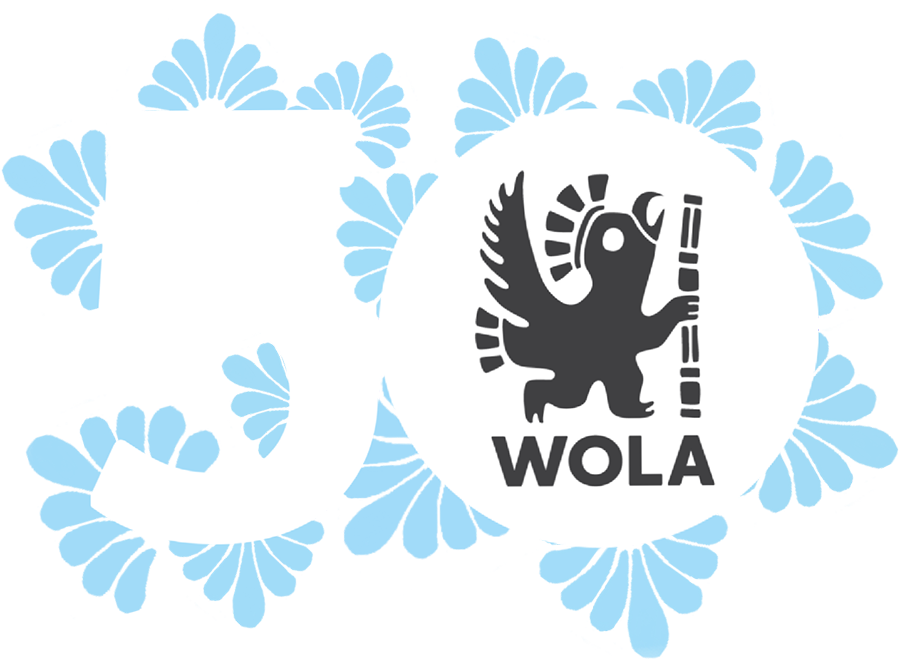Last week, a delegation from Buenaventura, led by the mayor and her team, visited Washington, DC. During the visit, a meeting was held at the Colombian Embassy with U.S. civil society and the Buenaventura and Afro-Colombian diaspora.
Alarmed by Buenaventura’s human and labor rights situation, as well as the insecurity coupled with the fiscal consequences of corruption and the lack of compliance with the 2017 civic strike agreements (intended to address the inequality gap and benefit Bonaverenses), our organizations would like to state the following:
Urban Peace Must Be Prioritized and Action Taken
We urge the Colombian Presidency, Colombian Congress, the High Commissioner for Peace, and the Colombian Attorney General’s Office to do everything possible to move forward with the urban peace process that began in September 2022. This process brought much hope to those living in the city where the country’s primary port is located. As the process was advancing, there was a reduction in armed violence and homicides. This was facilitated by the truce agreed upon between the illegal armed groups, which allowed for free transit of the area’s inhabitants.
The significant drop in homicides between September and March 2022 encouraged many, both within and outside Colombia, to believe that peace was possible and that Buenaventura could exist without armed violence. There was hope that this marked the beginning of a better future. This socio-legal space allowed for a ceasefire agreement.
However, the urban peace process remains very fragile. For it to advance, the Colombian Congress needs to pass a law that provides a legal framework to streamline agreements and provide guarantees for the participants. At the same time, corruption between some public officials and illegal groups has blocked the process and fostered distrust.
The Office of the High Commissioner for Peace has not prioritized urban peace processes, making them fragile. The necessary negotiation tools do not exist, which, unless resolved, may worsen insecurity. Inaction can result in the actors losing confidence in the process or deter participation in future processes, which is necessary for them to demobilize.
Local, national, and international civil society must oversee the process to guarantee its success. The process must also be transparent. Any criminal links between public officials and illegal groups must be severed. Parallel to this, protection for social, religious, and ethnic leaders must be ensured.
If the process fails, civilians who already live in very precarious and marginalized conditions, especially young adolescents and children, will suffer the most. A safe Buenaventura ensures better living conditions for its inhabitants, investments, and stability for both national and international businesses.
Advancing the Agreements signed on June 6, 2017.
All sectors -social, business, governmental, national, departmental, and local government- should unite to implement the Special Comprehensive Plan for the Development of Buenaventura 2040 (PIEDB 2040). These projects are crucial to fulfilling the commitments outlined in Law 1872 and its regulatory decree 958 of 2018. Despite facing significant setbacks and complex situations and attempts to disregard responsibilities in fulfilling these agreements, the demands voiced during the Buenaventura strike and the identified need for addressing inequality, inequity, and structural racism remain a priority.
The basic conditions required for living with dignity and peace in the territory -such as access to health, education, justice, productivity and employment, housing, and 24- hour drinking water- remain unresolved.
The U.S.-Colombia Labor Action Plan was signed with a commitment by both countries to resolve the labor rights crisis, labor precariousness, and the protection of port terminal workers. A decade after the signing, the labor situation remains precarious. It requires special attention from the Colombian Minister of Labor, the U.S. Department of Labor, the ILO, and all companies that use port services.
The agreements from the Buenaventura civic strike were intended to solve structural problems and guarantee rights. This includes the need for public and private investments to address the social investment deficit. The deficit results from resource mismanagement, corruption, and other structural issues that have depleted or diverted resources designated for the people. The economic model proposed in the PIEDB 2040 includes a vision of development that increases resources, closes gaps and stimulates local economies.
As civil society organizations, we are still waiting for the U.S. government to move forward with the labor agreement regarding trade unionists and the port sector established under the FTA. Buenaventura should be included in future exchanges and actions to reduce racism and racial discrimination. We demand that President Joseph Biden, the U.S. Congress, the State Department, and the Department of Labor, within their mandates and agreements with Colombia, integrate efforts to dismantle illegal and criminal groups in Buenaventura, ensure justice for their victims, advance and implement the humanitarian agreements with the ELN that have a direct impact on the municipality of Buenaventura, and advance the implementation of the Ethnic Chapter of the 2016 peace agreement.
Washington Office on Latin America (WOLA)
Latin America Working Group (LAWG)
International Institute for Race and Equality
Colombia Acuerdo de Paz NGO
Colombia Human Rights Committee (CHRC)
National Alliance of Afro-Colombian Journalists
Afro-Latino Development Fund
To read the full statement, click here.




